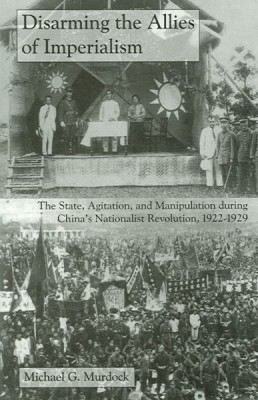| Disarming the Allies of Imperialism: The State, Agitation, and Manipulation During China's Nationalist Revolution, 1922-1929 Contributor(s): Murdock, Michael G. (Author) |
|
 |
ISBN: 1885445318 ISBN-13: 9781885445315 Publisher: Cornell East Asia Series OUR PRICE: $32.62 Product Type: Paperback - Other Formats Published: March 2010 * Not available - Not in print at this time * |
| Additional Information |
| BISAC Categories: - History | Asia - China - Political Science | International Relations - Arms Control - History | World - General |
| Dewey: 951.041 |
| LCCN: 2006925210 |
| Series: Cornell East Asia |
| Physical Information: 0.94" H x 5.95" W x 8.68" (0.98 lbs) 362 pages |
| Themes: - Cultural Region - Chinese |
| Descriptions, Reviews, Etc. |
| Publisher Description: This study provides a striking new explanation of how China's Nationalist Party (GMD) defeated its rivals in the revolution of 1922-1929 and helped bring some degree of unification to a country torn by class, regional, and ideological interests. Disarming the Allies of Imperialism argues that inconsistency--more than culture, ideology, or any other factor--gave nationalism its unique edge. Revolutionary leaders manipulated revolutionaries and non-revolutionaries alike to advantage their own positions and seize national power, sometimes seeking to protect foreign lives and property and shield Chinese merchants from agitative disruptions, sometimes voting to do the opposite. Exploiting the symbiotic yet contradictory relationship between state-building, which sought foreign ties and international recognition; and low-level agitators committed to confrontational anti-imperialist objectives, top Guomindang leaders were able to manipulate political circumstances to their own benefit. For example, party leaders stirred up anti-Christian sentiment, pitting popular forces against mission schools, while simultaneously intervening to rescue these same schools from agitative destruction, thus helping missionaries to soften their attitudes toward the revolution and eventually embrace the new order.Scholars of modern Chinese history and anyone familiar with the growing literature on nationalism will appreciate this work for its elucidation of a complex historical snarl, while undergraduates and scholars outside the China field will find this a useful and accessible study as well. |